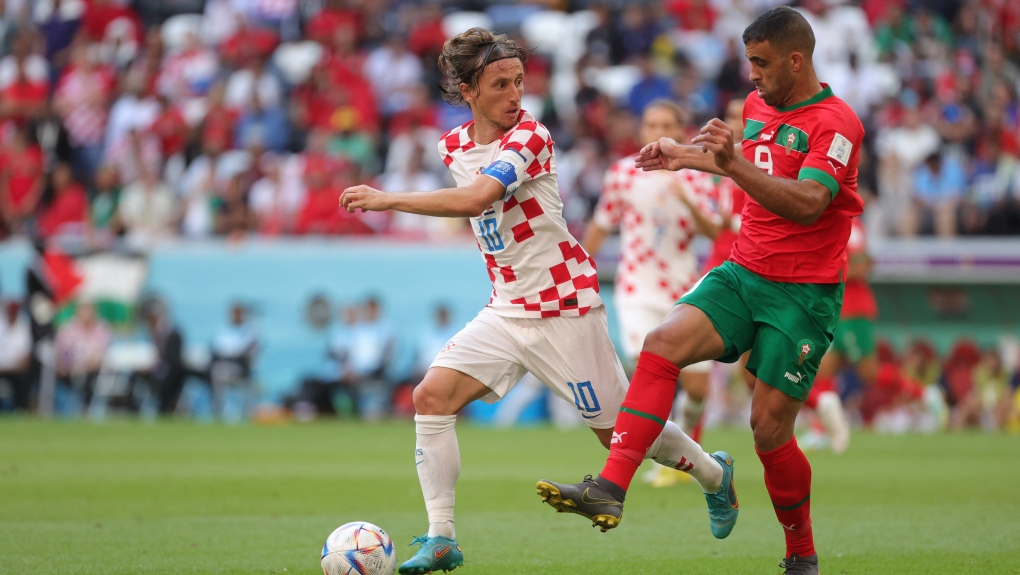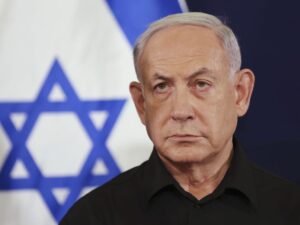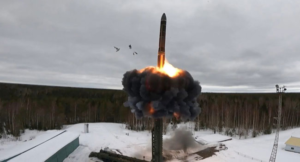
In the first match of Group F, Croatia and Morocco played out a fairly dull, goalless draw.
Croatia is largely expected to make it out of the group alongside Belgium as one of the higher-ranked European teams, boasting one of the best midfielders in the world in Luka Modric, and having made the final of the last World Cup in 2018.
Morocco, meanwhile, has several players playing across Europe including Paris Saint Germain’s Achraf Hakimi, Chelsea’s Hakim Ziyech, and Bayern Munich’s Noussair Mazraoui.
Here are five things we know about the two opponents after they squared off Wednesday morning:
Morocco was extremely organized and disciplined in defence, and barring a couple of quality chances, held Croatia in check.
In a 4-1-4-1 formation, the Moroccan press is something Canada will have to be wary of, as well as the pace of Hakimi and Mazraoui. The latter picked up an injury and had to be substituted, so his potential absence going forward in the tournament could be crucial.
Crowd support also proved to be an X-Factor with The Atlas Lions looking energized by the sea of red.
In previous tournaments, former star strikers Mario Mandzukic and Davor Suker provided the cutting edge for Croatia.
Now, the likes of Modric, Mateo Kovacic, and Marcelo Brozovic look to break down opposing defences, but Croatia’s lack of a true finisher stands out.
The Croats also used a 4-3-3 formation, and while a front three of Ivan Perisic, Andrej Kramaric, and Nikola Vlasic includes players who are creative and good runners, they are not necessarily the most lethal of marksmen.
After the match, Modric admitted as much in saying the team “missed something up front.”
Sofyan Amrabat and Modric were standout performers in the middle of the pitch, both box-to-box players although the former was in a more defensive role Wednesday considering the task at hand.
Even if the end product was missing, Modric had enough moments to show how quickly he can unlock a defence. Morocco will surely present more of an attacking threat against Canada, and that should open up more chances for Amrabat to show his ability to pick a pass.
Enough can’t be said about just how crucial Stephen Eustaquio and Atiba Hutchinson’s performances will be to Canada’s chances.
Dejan Lovren has been a mainstay of the Croatian defence and was terrific when called upon, but is now paired with 20-year-old rising star Josko Gvardiol of RB Leipzig.
Wearing a face mask after a collision with a teammate on Nov. 10 in Bundesliga action, Gvardiol looked at ease next to Lovren while also successfully completing six of his seven long-ball passes.
Morocco captain Romain Saiss is a well known quantity in the Premier League and looked assured alongside Nayef Aguerd in combination with the strong midfield support in front of them.
Still, Croatia has nowhere near the speed Canada possesses and that will pose very different questions to Morocco’s backline.
Regardless of the outcome against Belgium, a draw instead of a win for either team, which would have seen them jump ahead with three points, is good for Canada and keeps both teams within striking distance
The top two teams from each group advance and while getting at least a point from the first two fixtures against Belgium and Croatia is pivotal, Canada will go into these matches knowing an opportunity beckons.







